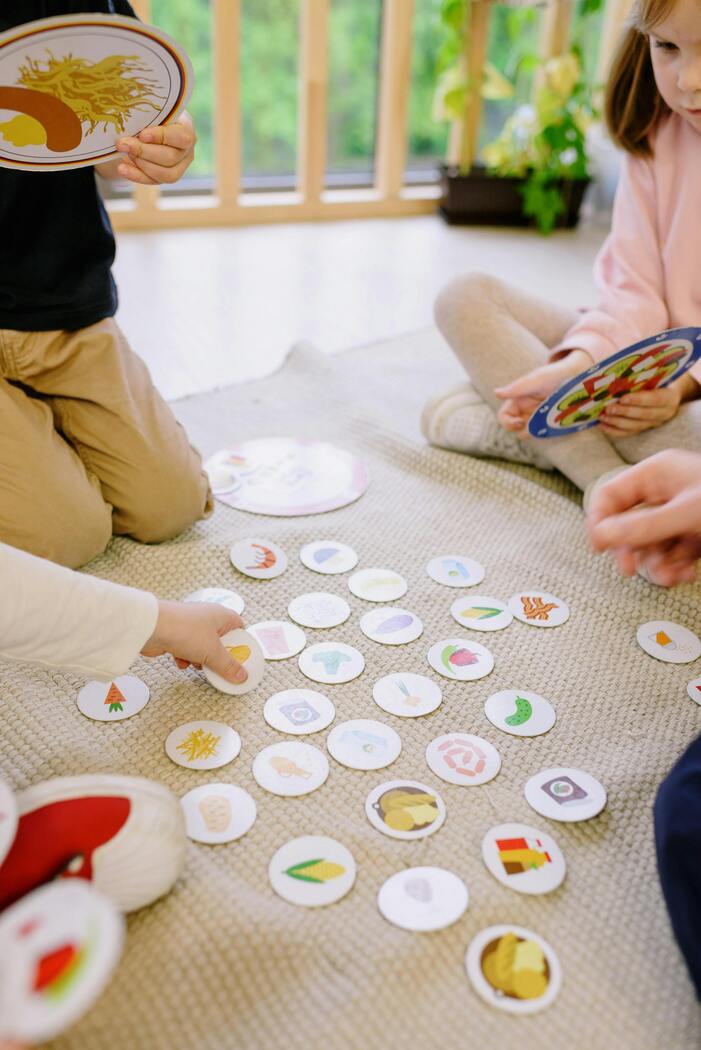A number of techniques and methods have been developed over the decades to improve the skills of children with Autism Spectrum Disorder (ASD). While there are programmes, methods and treatments that have proven to be effective and have a high rate of validity and confidence, there are also a significant number of treatments and methods without scientific evidence or validity. There are also a significant number of treatments and methods without scientific evidence or validity.
That is why Easy Learning relies on a clinical framework in which the methods to be taught have been evaluated and presented in scientific articles.
In this review we would like to introduce you to some programmes and methods that are deeply studied and supported by scientific evidence. They have delivered great results in the development of children with ASD or other communication and behavioural disorders.


ABA - Applied Behaviour Analysis
Skills development through a behavioral approach

PECS Picture Exchange Communication Picture - (Frost & Bondy)
Visual communication for children with ASD

TEACCH
Individualized program and environmental organization

VB-MAPP (Mark Sundberg, Ph.D.)
Assessment of social and language skills

ABBLS (Dr: James W. Partington)
Systematic manual for assessing and developing language skills

ABA - Applied Behaviour Analysis
The discipline of Applied Behaviour Analysis (ABA) provides a holistic approach to raising awareness and improving the behaviour of children with ASD. In which behaviour is analysed within a context and taking into consideration the individual’s abilities, consequences of the behaviour and what are the mitigating factors that give rise to the behaviour.
With the support of ABA, we, the behaviour analysts, create programmes based on learning psychology with a focus on operant behaviour. This results in the development of functional skills such as behaviour, language, generalisation and replaces and/or reduces challenging or unwanted behaviours.
ABA has decades of research based empirical evaluation of operant procedures and treatments that have been shown to be effective in teaching skills to children with ASD. In particular, early intervention has been shown to have a significant effect on the child’s life and development.
PECS Picture Exchange Communication Picture - (Frost & Bondy)
The Picture Exchage Communication Picture System (PECS) is a communication system, which is often applied to children with ASD who are very deficient in the area of functional communication. That is, they may be children who do not have an adaptive form of communication, or others who do have language but it is extremely limited or non-functional.
PECS® (Picture Exchange Communication System) was developed in the USA and aims to support interaction and communication. It was developed by speech therapist Lori Frost and psychologist Andrew Bondy. PECS can be used by both young children and adults with autism or other problems that affect communication development. The idea is to teach basic skills about the purpose of communication.
PECS is an alternative form of communication which is supported by visual references. That is, it is a picture communication system that aims to increase communication skills through the exchange of images. The method is systematic and consists of 6 phases.
It starts with teaching the child to make contact and to communicate what he/she wants. For this purpose, frequent opportunities are created during the day and in different environments in which the child asks for something, in order to make the child feel that he/she is able to communicate what he/she wants, such as activities, toys, etc. in order to stimulate spontaneous communication and motivate him/her to do so. When presenting the image with what he/she wants, the child is immediately given the requested item, which is intended to provide immediate reinforcement.
The level of complexity increases during the following phases, until the child is able to differentiate a considerable number of visual references, form sentences, comment, ask questions, indicate affirmations and negations and above all increase vocabulary and language comprehension.


TEACCH
TEACCH (Treatment and Education of Autistic and Communication related handicapped Children) is a method of intervention and education developed by the University of North Carolina in the USA to support individuals with autism and related communication disabilities. The approach focuses on structured environments, visual supports and individualised strategies to promote learning and independence in individuals with autism.
TEACCH – (Eric Shopler psychologist – Founder of TEACCH and researcher in ASD)
A part of TEACCH (Treatment and Education of Autistic and Communication related handicapped CHildren) consists of a test (PEP- Test Psyco educational profile) which is appropriate from 6 months to 7 years of age. In this test the child’s developmental profile is obtained in terms of verbal and non-verbal skills, fine and gross motor skills, imitation and coordination.
The result of PEP-test use to develop an individualised programme with specific goals that meets the skills the child needs to develop. There is also a manual which presents how each type of skill can be taught.
The most used part is the organisation of the environment. TEACCH presents a number of ways to organise the child’s environment in a systematic and concrete way. These are visual references that show the child activities to be performed, sequences to automate executive functions such as dressing, brushing teeth, academic activities, etc. This aims to make the external world comprehensible to the child.
VB-MAPP (Mark Sundberg, Ph.D.)
Verbal Behavior Milestones Assessment and Placement Program. This is a language and social skills assessment program for children with autism and other developmental disabilities.
It is very important that those administering this program possess knowledge and skills in behaviour analysis and verbal behaviour.


ABBLS (Dr: James W. Partington)
ABBLS is a support manual for systematically assessing language and learning skills. It consists of 25 areas including academic skills and language, social interaction, self-help, and motor skills. Outside of the assessment it also explains how to develop the necessary skills, which are of increasing difficulty.
Send us a message
At Easy Learning, we’re here to offer you training, guidance, and personalized support in caring for children with ASD and other special needs. Contact us today to start this important collaboration!
